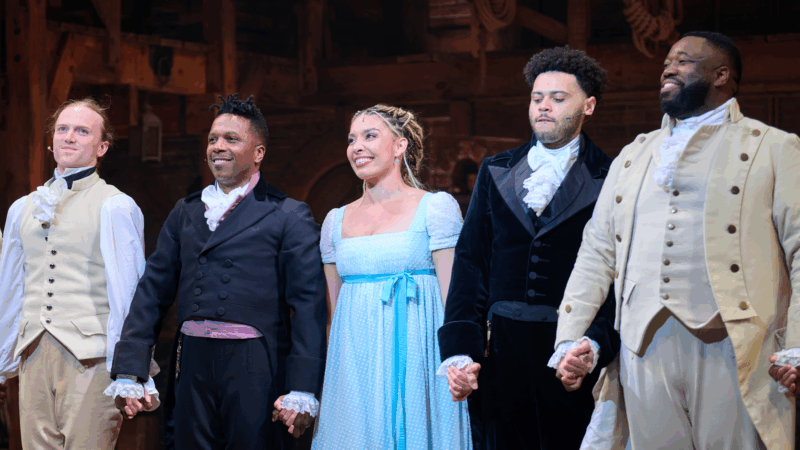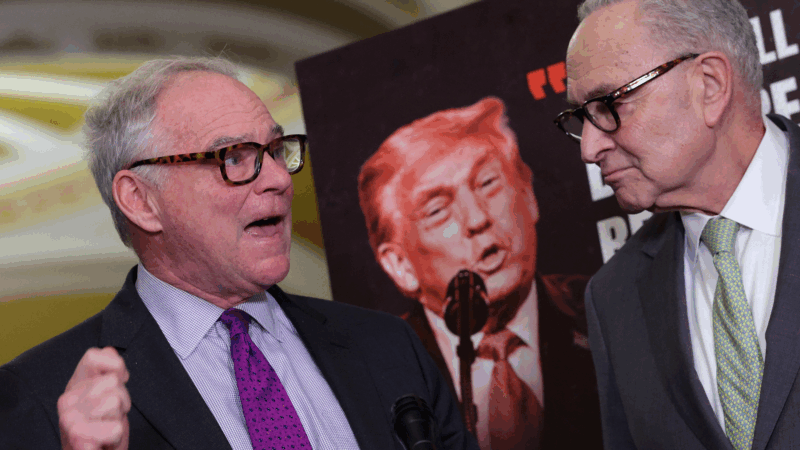Talks resume as Broadway actors consider a strike
The union representing Broadway actors and stage managers is resuming negotiations Wednesday in order to try to head off a strike.
The main sticking point between Actors’ Equity Association, the union representing performers and stage managers, and The Broadway League, which represents theater producers and owners, is health care.
About 900 Broadway Equity performers and stage managers have been working without a contract since it expired on Sept. 28. A strike would shutter about 26 Broadway productions. Five shows — Punch, Ragtime, Mamma Mia, Little Bear Ridge Road and Beetlejuice — would stay open, because they operate under different contracts.
Purple Rain, the stage adaptation of Prince’s film that’s about to open in Minneapolis and heading for Broadway, would also shut down.
The union says that contributions from producers to the health care fund have remained the same for a decade, and regional theaters across the country often pay more.
“The Broadway producers pay less into the health fund per worker than any other Equity house in the nation,” said Equity Executive Director Al Vincent Jr. in an email.
Equity expects the health care fund to be in a deficit by May. The union is seeking an increase of about .21% of each show’s weekly gross, which, last season, would have amounted to about $4 million. In a statement, Equity said that while the League pays about $150 per person a week toward health care, venues like Cape Fear Regional Theatre in North Carolina, with 273 seats, pay $220 per person a week. Theaters must have a minimum of 500 seats to be considered as a Broadway theater.
In a statement emailed to NPR, the League said, “As the union knows well, the employer contribution rates under the contract are only one component of how our employers fund these benefits. In addition to these weekly contributions under the contract, the health fund receives millions of dollars each year from Broadway production grosses that add to the total benefits contributions of the health fund.”
Last season, high ticket prices fueled by celebrity stars led to the highest-grossing Broadway season on record, with $1.89 billion in ticket sales. However, Broadway musical producers are struggling to recoup their investment. Of the 46 new musicals that have opened on Broadway since the pandemic, only three are profitable. Attendance has not fully recovered and the cost of labor, materials and rent to theaters has risen.
Plays have performed better recently, especially limited runs headlined by A-list celebrities, which can charge higher ticket prices and have lower costs. Last season, seven plays made money, out of 21 that opened.
Broadway musicians are also currently working under an expired contract. They are expected to bargain next week over wage increases, work rules, and health care. Bob Suttman, the president of the American Federation of Musicians, Local 802, said that they are “standing in lockstep” with actors.
“The regressive proposals put forward by management are a slap in the face to the integral role they play every night, and they stand ready to do whatever it takes to secure a contract that protects their livelihoods and access to healthcare,” Suttman said in a statement to NPR.
There are about 250 musicians working on Broadway.
Health care has become even more of a priority once it was announced that rates may spike for health plans under the Affordable Care Act (ACA), which many performers rely on. Theater jobs are physically taxing and illness can quickly cycle through a cast. But it’s not the only thing performers and stage managers are fighting for.
“We work six days a week, 52 weeks a year,” said Jacqueline Jarrold, a co-chair of the negotiating team and a Broadway actor. “We need robust healthcare, yes, but also appropriate physical therapy, adequate job coverage, and reasonable time off to rest and recover.”
Ciera Crawford edited this story.
A split Senate votes against measure to constrain Trump’s authorities in Iran
Democrats in the Senate were facing an uphill climb Wednesday in their push to restrain President Trump's ability to wage war against Iran.
WATCH: How traffic dried up in the Strait of Hormuz since the Iran war began
The effective closure of the Strait of Hormuz is "about as wrong as things could go" for global oil markets. Iran achieved it not with a naval blockade, but with cheap drones.
As Mississippi waits to spend opioid settlement funds, children and families suffer
Mississippi will receive more than $400M to fight the opioid epidemic. So far, officials haven't directed it toward programs that support addiction recovery.
Alabama’s new state climatologist takes the reins
The controversial John Christy is retiring as Alabama’s state climatologist. Lee Ellenburg now assumes the role and is already making a few changes, including declaring that climate change is real and caused by humans.
Colossal Biosciences breeds controversy while trying to revive mammoths
A Texas biotech company is trying to bring mammoths and other extinct creatures back to life. The science is as intriguing as the ethical questions are thorny.
Mundane, magic, maybe both — a new book explores ‘The Writer’s Room’
Why are we captivated by the spaces where where authors write? Katie da Cunha Lewin set out to explore "The Hidden Worlds That Shape the Books We Love."






